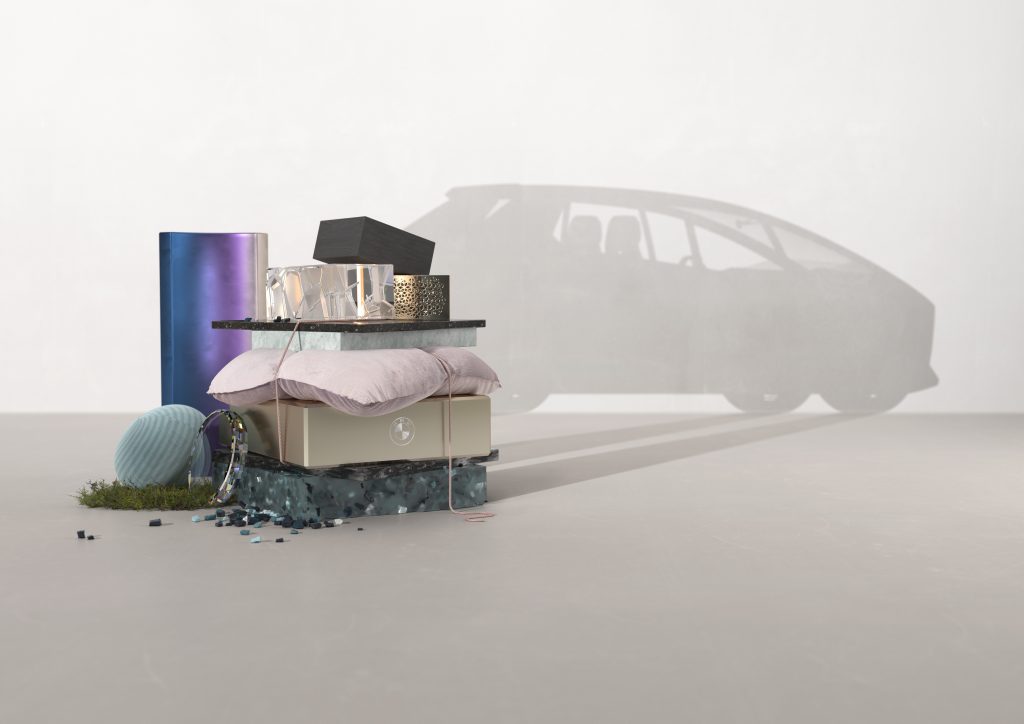The BMW Group is stepping up its fight against climate change with a unique sustainability strategy and clearly defined CO2 targets.
Looking ahead to the introduction of the Neue Klasse, the company is further strengthening its self-defined objectives, announced in the summer of last year, to significantly reduce CO2 emissions, while also committing itself to a clear course that supports the 1.5-degree target for the limitation of global warming.
To achieve a further reduction in CO2 emissions, the focus is on the utilisation phase of vehicles, which account for 70% of the BMW Group’s CO2 footprint. By 2030, the CO2 emissions per vehicle and kilometre driven will be at least halved from 2019 levels.
The commitment of all manufacturers when it comes to combatting climate change can best be compared when looking at the entire life cycle of a vehicle, including production and upstream supply chain. Here, the BMW Group is planning a reduction of CO2 emission per vehicle of at least 40%, according to Oliver Zipse, Chairman of the Board of Management of BMW AG.
“How companies are dealing with CO2 emissions has become a major factor when it comes to judging corporate action. The decisive factor in the fight against global warming is how strongly we can improve the carbon footprint of vehicles over their entire life span,” he said. “This is why we are setting ourselves transparent and ambitious goals for the substantial reduction of CO2 emissions; these are validated by the Science Based Targets Initiative and will deliver an effective and measurable contribution.”
Also, the BMW Group is the first German carmaker to join the Business Ambition for 1.5°C of the Science Based Targets Initiative and is committed to the goal of full climate neutrality over the entire value-added chain by 2050 at the latest. This means that the company is also part of the international Race to Zero Initiative. BMW is convinced that this can be achieved using innovation, rather than any overall ban on individual technologies.
The most powerful driver on this path to climate neutrality is electric mobility, with the BMW Group’s Neue Klasse set to provide significant further momentum to the market. During the next ten years or so, the company will be putting around ten million all-electric vehicles on the road. As early as 2030, at least half of global BMW Group sales will be all-electric vehicles, with the MINI brand offering exclusively all-electric vehicles from 2030.
Also, with the number of battery-powered vehicles growing, there is increasing demand for many commodities such as cobalt, nickel and aluminium, which are required for the vehicles’ high-voltage batteries. However, there is great potential for the reuse of materials in the sense of a circular economy and together with specialist partners, the BMW Group has already demonstrated that it’s technologically feasible to achieve a recycling efficiency of over 90%.
The amount of secondary nickel used for the high-voltage battery in the BMW iX is already as high as 50 percent, with the battery housing containing up to 30% secondary aluminium. The BMW Group aims to improve these figures even further for future product generations.
As part of its holistic approach to sustainability, the BMW Group aims to increase significantly the percentage of secondary materials in its vehicles. On average, current vehicles are manufactured using almost 30% recycled and reusable materials. With the ‘Secondary First’ approach, BMW Group plans to successively raise this figure to 50%.
The BMW Group believes only a holistic approach to the use of proven and new materials can permanently reduce CO2 emissions. For this reason, the BMW Group is focusing its research and development efforts on environmentally compatible raw materials. At the same time, it is accelerating the creation of a secondary-materials market and working with select startups and experienced material suppliers to develop pioneering materials, according to Dr Stefan Floeck, head of Development Body, Exterior, Interior, responsible for Product Line MINI, Compact Class BMW.
“We are setting new standards for sustainable premium quality – by rethinking materials and focusing more than ever on resource-efficient alternatives and renewable materials with strong dismantling capability,” he said. “We are following a consistent path towards holistically sustainable product development, responsible use of resources and transformation into a circular economy.”
The Group is putting circular economy at the centre of its presence at the IAA Mobility 2021 in Munich, where the company will offer a visionary outlook on the potentials of a circular economy and sustainable mobility. The BMW i Vision Circular embodies the company’s ambitious claim to be the most sustainable manufacturer for individual premium mobility.
This visionary vehicle, designed according to the four principles of the circular economy Re:think, Re:duce, Re:use, Re:cycle, will show how individual, sustainable and luxurious urban mobility could look in 2040. The BMW i Vision Circular is manufactured from 100% secondary materials or renewable raw materials and is 100% recyclable.
